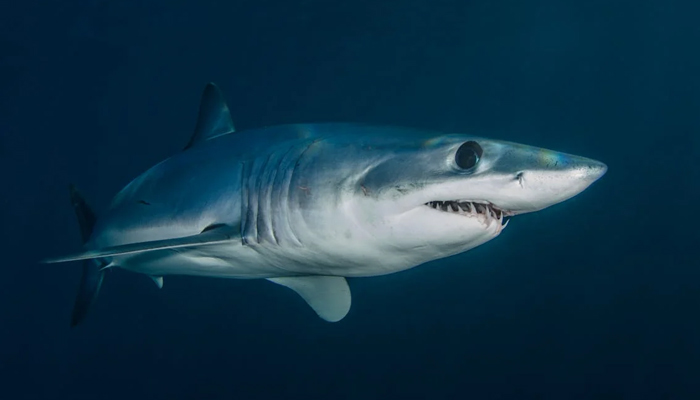Why have sharks become fiercer over time?
Apex marine predators are now more dangerous than they have ever been, but why?
June 04, 2024

A new study has revealed new information about sharks’ behavior claiming how volcanic eruptions influence the fierceness in the sea predators.
According to the study published in the journal Current Biology revealed that the sharks evolved around 93 million years ago when lavas entered into the ocean, reported Newsweek.
This phenomenon increased the temperature of ocean, more than ever.
Experts now maintain after studying more than 500 fossilised sharks that the species developed their pectoral fins.
The study’s first author Phillip Sternes said in a statement: "The pectoral fins are a critical structure, comparable to our arms. What we saw upon review of a massive data set, was that these fins changed shape as sharks expanded their habitat from the bottom to the open ocean.
"Their fins are comparable to the wings of commercial airplanes, long and narrow, to minimise the amount of energy needed for movement."
Most of the modern shark still live in the benthic zone, the ocean floors, and they are flatter, and medium-sized predators, unlike the “fierce, fast-swimming open-water sharks”.
Scientists maintained that ancient species breathing difficulties due to low oxygen levels at the bottom of the ocean that prompt sharks to come to open waters in Cretaceous period.
At that time, surface temperatures on sea were warmer than today.
"We had pretty warm open-sea surface temperatures throughout the era, and then a distinct spike that took place over a one- or two-million-year period," A paper co-author Lars Schmitz said.
"The temperature is going up so fast now, there is nothing in the geologic record I am aware of that we can use for a true comparison," Sternes said.
Scientists are currently puzzled about predicting how marine life would adapt to changing water temperatures.











